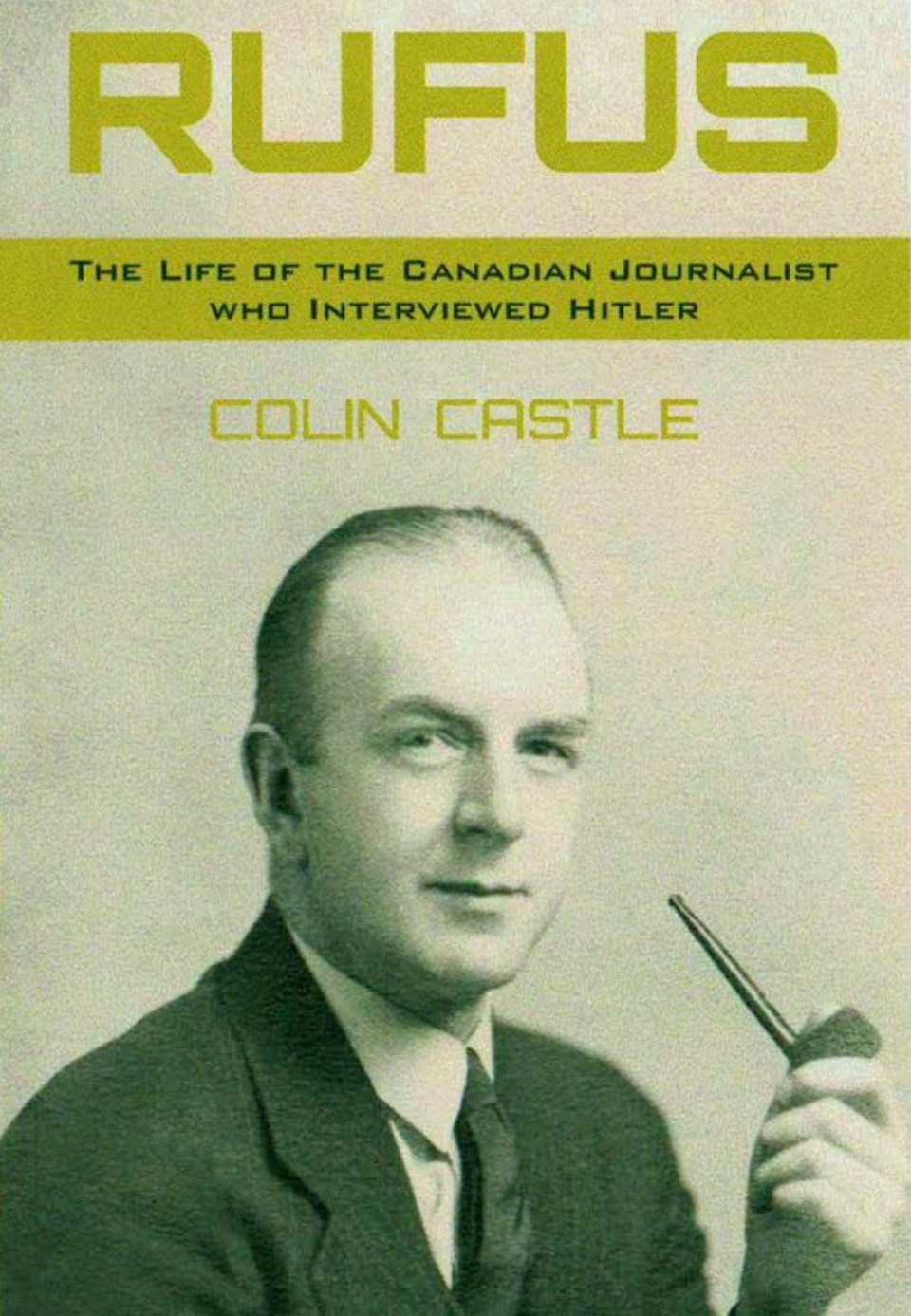Rufus: The Life of the Canadian Journalist Who Interviewed Hitler
By Colin Castle
Granville Island Publishing, 328 pp., $19.95
We can cut to the chase by quoting the headline on the front page of the Victoria Daily Times of Saturday, Nov. 18, 1933: Journalist Known on Both Sides of Atlantic Missing.
The newspaper reported that Lukin Johnston of London, formerly of Vancouver, Victoria and Duncan, had disappeared from a ship crossing from the Netherlands to England.
Johnston was a remarkable man, a journalist who had just scored one of the most important interviews possible: He had interviewed German Chancellor Adolf Hitler soon after the Nazis took power.
He filed a story that was used in some of the largest daily newspapers in Canada, then headed for home. It was on his way to London that he disappeared, creating one of the most enduring mysteries of Canadian journalism.
Edwin Harry Lukin Johnston — or Rufus, as he was known — was born in England in 1887 and came to Canada in search of a better life when he was 18. He found things much tougher than he had expected.
After spending almost five years working on farms in Ontario, Saskatchewan, Alberta and British Columbia, he arrived in Vancouver in April 1910, eager to try his hand at journalism. He was hired by the Province, but quit after eight months for what seemed like a better job, as the B.C. representative for a Toronto-based magazine, Canada.
In 1911, he became editor of the Cowichan Leader. In early 1914 he moved to Victoria to become news editor of the Daily Colonist, even though he had earlier described the newspaper’s editor, Charles Lugrin, as “one of the worst rogues unhung.”
In November 1915, Johnston enlisted with the 88th Battalion, and saw action at Vimy Ridge, Passchendaele, Avions, Hill 70 and Arras.
After the Great War ended, Johnston returned to B.C., taking a job at the Province again. He covered major events such as the Washington Naval Conference and President Warren Harding’s visit to the West Coast.
In 1928, he became the London correspondent for the Southam newspaper chain, and for the next five years helped explain what was happening in Europe to his Canadian readers. He also wrote three books, Down English Lanes, Beyond the Rockies and In England Today.
His interview with Hitler was the climax of his career, but just three days later, it was announced that he had disappeared.
What happened to him? Basically, there are three ways to explain his departure from the ship, the Prague: He jumped, he fell, or he was pushed.
Author Colin Castle, a retired teacher who is married to Johnston’s granddaughter Val, argues that the Nazis had reasons to want the writer out of the picture. He had spent enough time in Germany to gather material for a book, and any book Johnston wrote would be sure to tell the truth about what was happening in the country.
Drawing extensively from Johnston’s own diaries and family letters, Castle gives us a strong sense of what made Johnston tick, including his love for his wife, Bee, as well as other interests such as little theatre.
It is a comprehensive biography of a man who could have faded into the obscurity of history – even though he was a household name eight decades ago. It is also a real-life mystery.
Rufus Johnston helped keep British Columbians informed, and then became a national media star because of the way he covered the changes sweeping through Europe.
In the end, however, the storyteller became the story – and the subject of speculation that will never be resolved.
The reviewer is editor-in-chief of the Times Colonist.



